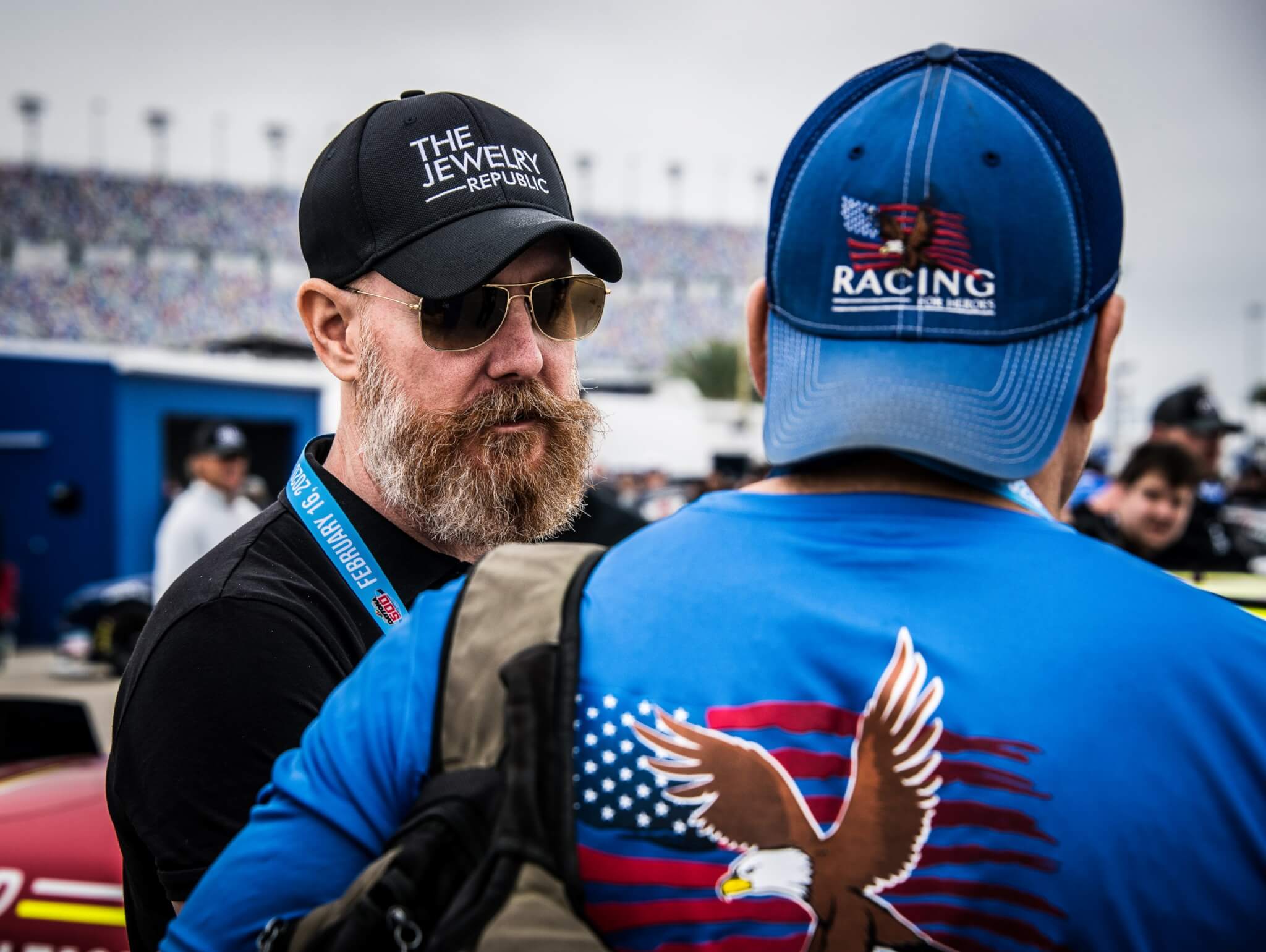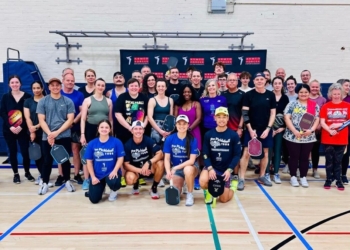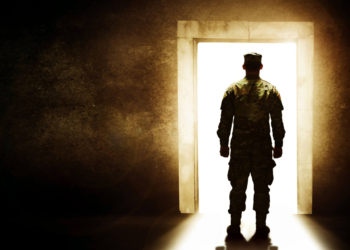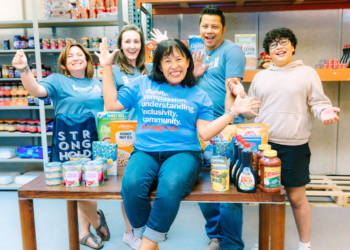When the doctor put Mike Evock into a racecar simulator, the retired Green Beret had no idea why.
“I said, ‘What the heck is this?’ he said. “But the doc said you don’t realize how much we do when we drive.”
It proved to be a turning point in Evock’s life. With over 50 significant injuries from multiple IED explosions and a helicopter crash, the chief warrant officer struggled with post-traumatic stress disorder and traumatic brain injuries. He often had trouble sleeping and was in physical pain.
But then he got behind the wheel of a racecar and his life got back on track, so to speak.
“The car really helps out [with PTSD and TBI],” Evock said. “It doesn’t make sense, but racing really helps with hand-eye coordination, calming your brain down and helping you sleep. So, racing helps with the rest of your life, too.”
Helping heroes
Inspired by his healing journey, Evock founded Racing for Heroes in 2009 in order to support his fellow Special Forces brethren. The nonprofit uses motorsports as a platform to honor and assist military members across the nation.
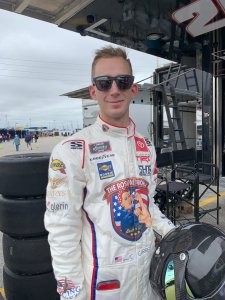
It was a match made in racing heaven when he teamed with NASCAR owner Sam Hunt and driver Colin Garrett, the youngest duo in the Xfinity Series. Both of Garrett’s brothers are active-duty soldiers, while one of Hunt’s best friends is a Navy SEAL.
Besides their strong military ties, all three men were concerned with the growing epidemic of veteran suicide in America. Nearly 20 veterans kill themselves each day nationwide, more than 1.5 times the civilian rate. More than one of Evock’s former co-workers and friends are among that number.
“When you hear about [a new suicide], it has just a huge effect,” Evock said. “Just knowing that there was a way for them to do something other than what they did.”
The car that Garrett drives now features the Racing for Heroes logo — but that’s just the most visible portion of the partnership. Through the various races throughout the season, the “Our American Dream Team” gets television time and other media appearances, chances to crowd-fund for veterans’ causes, face time with veterans and their families and the opportunity to speak to NASCAR fans about military suicide prevention.
“With the national stage we’re on, [this cause] is something we get to do,” Garrett said. “At the end of the day, racecar driving is probably five percent of our job. It’s all about what leads up to it, all the social media, the TV time getting to have a voice to talk about veteran suicide and prevention, getting to hang out at the track with the veterans themselves.”
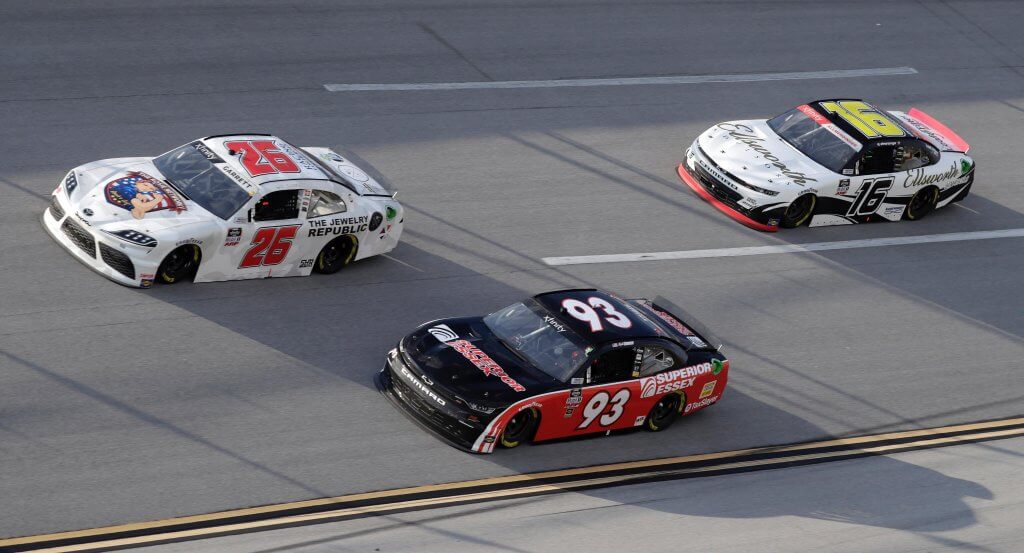
Changing the NASCAR normal
The unusual partnership between Hunt and his crew alongside Racing for Heroes has allowed for some unique business moves. Instead of traditional corporate sponsors with deep pockets, “Our American Dream Team” is crowdfunding through everyday joes, especially military- and military spouse-owned small business owners. A recent example includes raising more than $200,000 to pay for a veteran’s stem cell treatments.
“At first the people around NASCAR called us ‘the people’s team’ jokingly, but now they call us ‘the people’s team’ respectfully,” Lisa Kipps-Brown, a pro bono marketing strategist for the partnership and wife of a Vietnam veteran, said. “We are determined to make this all happen, and we have big dreams.”
Those dreams include moving up to the Cup Series (NASCAR’s top-level), generating enough funding to help pay for veterans’ medical and alternative treatments, providing small military business funding and establishing a Racing for Heroes medical center.
A man recently approached Garrett at a speedway with the Racing for Heroes logo on his truck.
“He told me how appreciative he is of what we’re doing, what we’re trying to accomplish,” Garrett said. “It’s one big family here, and if a veteran comes to the track, they can be a part of it.”
The Military Crisis Line is a free, confidential resource for service members, available at 800-273-8255 or text 838255.
Read comments
